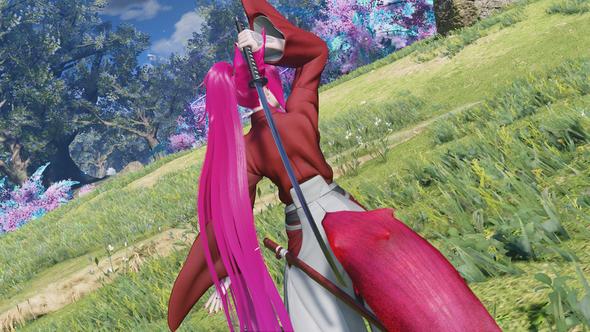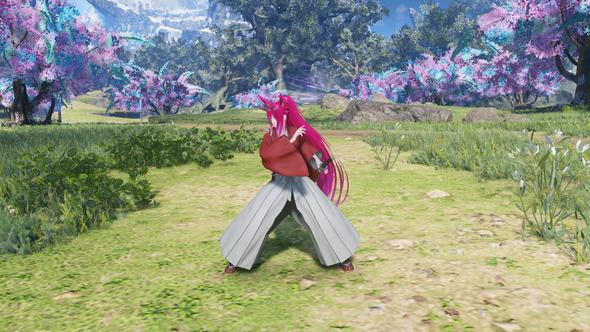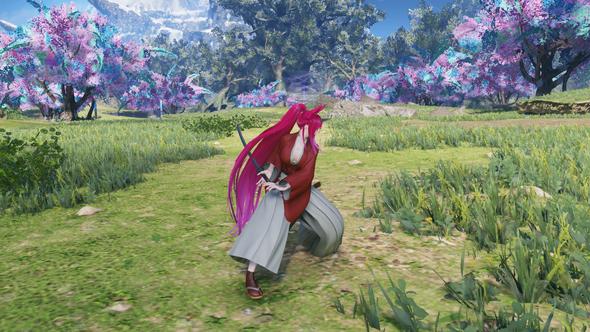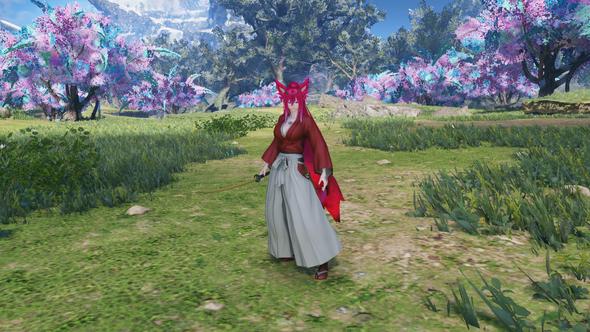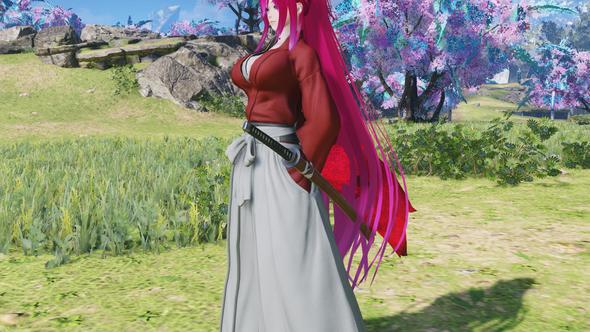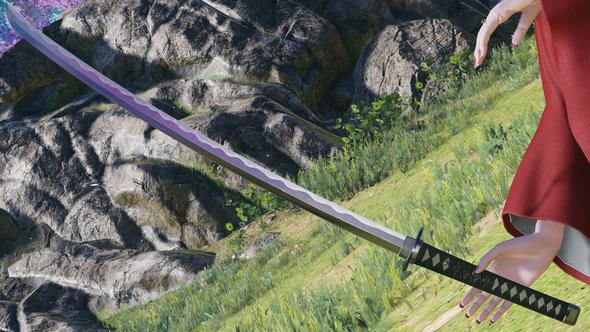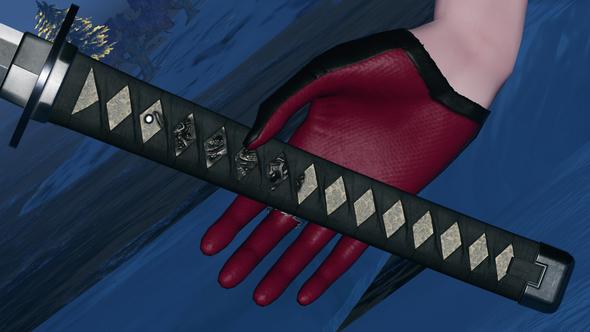Difference between revisions of "* Sakabato"
m |
m |
||
| (One intermediate revision by the same user not shown) | |||
| Line 20: | Line 20: | ||
It is depicted as a shinto era katana, its {{#simple-tooltip: hamon|Blade pattern}} in an extremely rare recreated {{#simple-tooltip: hitatsura|"full temper"}} {{#simple-tooltip: notare|wave/swell}} {{#simple-tooltip: midare|Irregular}} on both sides of the blade, which makes it difficult to spot the cutting edge from afar, while the {{#simple-tooltip: tang|The length of metal that extends beyond the blade, into the handle}} ends with a {{#simple-tooltip: kengyo shape|Symmetrically pointed}}. | It is depicted as a shinto era katana, its {{#simple-tooltip: hamon|Blade pattern}} in an extremely rare recreated {{#simple-tooltip: hitatsura|"full temper"}} {{#simple-tooltip: notare|wave/swell}} {{#simple-tooltip: midare|Irregular}} on both sides of the blade, which makes it difficult to spot the cutting edge from afar, while the {{#simple-tooltip: tang|The length of metal that extends beyond the blade, into the handle}} ends with a {{#simple-tooltip: kengyo shape|Symmetrically pointed}}. | ||
The sword was forged by the master swordsmith Arai Shakkū and is Himura Kenshin's main weapon throughout Rurouni Kenshin. | The sword was forged by the master swordsmith Arai Shakkū and is Himura Kenshin's main weapon throughout Rurouni Kenshin. | ||
| + | |||
| + | When swung, the blade comes out the opposite way of the sheath. The sheath is curved pointing upwards, while the blade comes out with the curve pointing downwards. While swinging the blunt end of the Katana forward is intentional, the mismatch with the sheath and blade when swung is likely to keep the traditional style when sheathed, and a limitation of how Katanas function in the game. | ||
{| class="mw-collapsible mw-collapsed wikitable" style="margin-left: auto; margin-right: auto; border: none; text-align:center; width:100%" | {| class="mw-collapsible mw-collapsed wikitable" style="margin-left: auto; margin-right: auto; border: none; text-align:center; width:100%" | ||
| Line 30: | Line 32: | ||
File:Sakabato4.jpg|<small>''Double Saber Stance''</small> | File:Sakabato4.jpg|<small>''Double Saber Stance''</small> | ||
File:Sakabato5.jpg | File:Sakabato5.jpg | ||
| − | File:Sakabato6.jpg | + | File:Sakabato6.jpg|<small>''The blade is designed with the sharp edge pointed towards the wielder''</small> |
File:Sakabato7.jpg | File:Sakabato7.jpg | ||
</gallery> | </gallery> | ||
Latest revision as of 00:04, 7 May 2024
| * Sakabato | ||
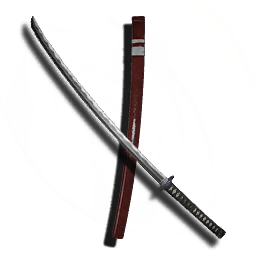
| ||
| Rarity: | ||
| Weapon Types: | ||
| Marketable: | ||
Drop Info
![]() Rurouni Kenshin Style - Scratch Count Bonus for scratching 40 times
Rurouni Kenshin Style - Scratch Count Bonus for scratching 40 times
Additional Info
The Sakabatō (Reverse-Blade Sword) is, as the name suggests, a Katana with an unusual design. It is designed with a blade forged on the opposite side that makes it difficult to use for killing.
It is depicted as a shinto era katana, its hamon in an extremely rare recreated hitatsura notare midare on both sides of the blade, which makes it difficult to spot the cutting edge from afar, while the tang ends with a kengyo shape.
The sword was forged by the master swordsmith Arai Shakkū and is Himura Kenshin's main weapon throughout Rurouni Kenshin.
When swung, the blade comes out the opposite way of the sheath. The sheath is curved pointing upwards, while the blade comes out with the curve pointing downwards. While swinging the blunt end of the Katana forward is intentional, the mismatch with the sheath and blade when swung is likely to keep the traditional style when sheathed, and a limitation of how Katanas function in the game.
| Weapon Screenshots |
|---|
| ||||||||||||||||||||||||||||||||||||||||||||||||||
